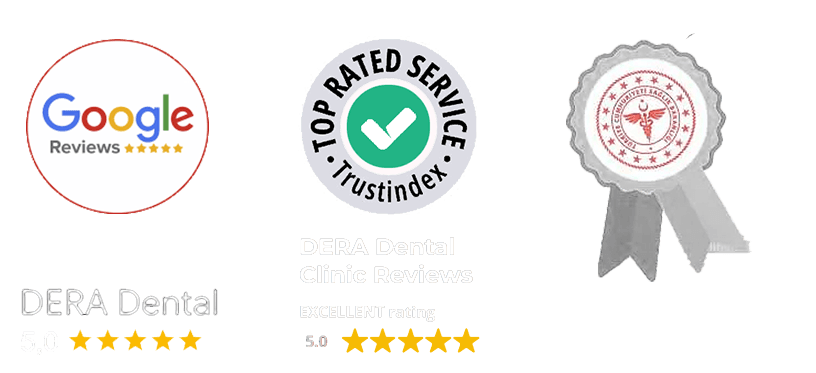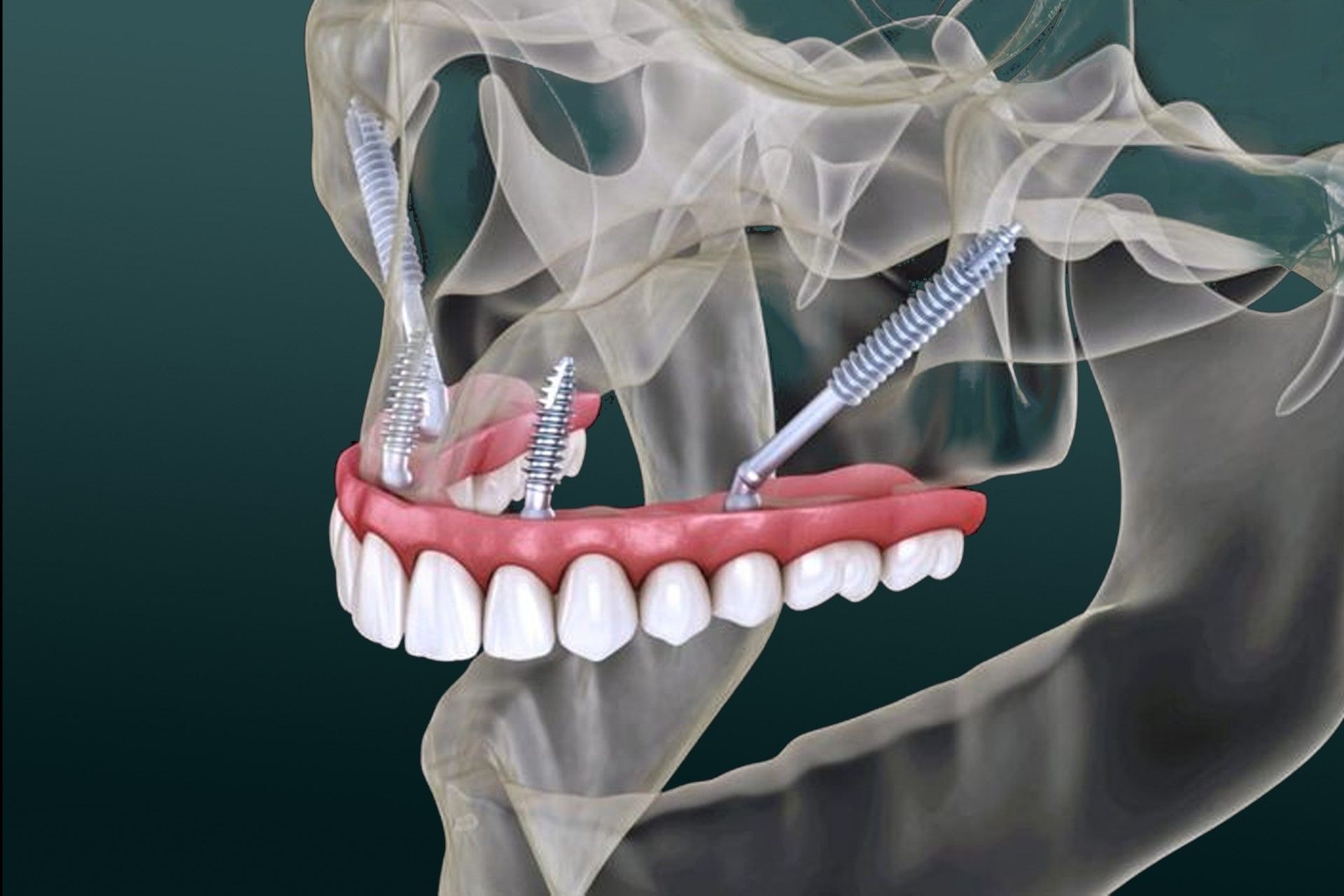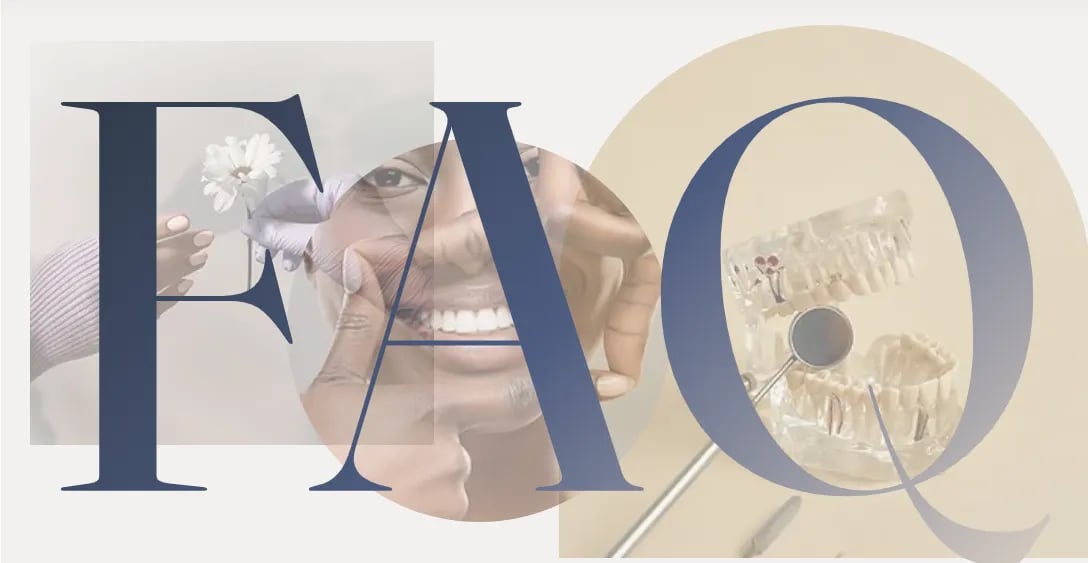
Timeframe
For zygomatic implants, our valued patients typically need to stay in Istanbul for 7 days. The exact duration may vary depending on the number of implants placed.


Severe bone loss in the upper jaw can be observed in patients due to various reasons (Periodontal disease, trauma, oral hygiene, etc.). Traditional implant treatment may sometimes not be possible for patients experiencing advanced bone loss. In such cases, "zygomatic implants," an innovative solution, come into play. The zygomatic implant provides a fixed and reliable anchor in the upper jaw by attaching to the cheekbone (os zygomaticum).
Dera Dental Clinic boasts an exceptional 99% success rate in zygomatic implant treatments for patients experiencing severe bone loss. Behind this achievement lies the profound expertise of our surgeons in this specialized field, the exclusive use of the highest quality, world-class biocompatible materials, and our clinic's extensive experience in handling complex surgical cases. By combining these three core strengths, we are committed to delivering safe, long-lasting, and aesthetically perfect results for our patients, even in the most challenging situations.

For zygomatic implants, our valued patients typically need to stay in Istanbul for 7 days. The exact duration may vary depending on the number of implants placed.

Our prices range from €2200 to €4500, depending on the brand and type of crown you choose. Restore your smile without compromising on the quality you deserve.

We use only the highest quality dental implant brands, which is why we offer a lifetime warranty on our implants and a 5-year warranty on crowns.
Zygomatic implants, unlike traditional dental implants, are longer implants designed to draw support from the cheekbone and overcome insufficient bone volume in the upper jaw. These implants are placed directly into the cheekbone (os zygomaticum), creating a strong foundation. Since the cheekbone has a denser and more voluminous bone structure compared to the upper jaw, it offers reliable anchorage even in patients with advanced bone loss.

Zygomatic implants, unlike traditional dental implants, are longer implants designed to draw support from the cheekbone and overcome insufficient bone volume in the upper jaw. These implants are placed directly into the cheekbone (os zygomaticum), creating a strong foundation. Since the cheekbone has a denser and more voluminous bone structure compared to the upper jaw, it offers reliable anchorage even in patients with advanced bone loss.

A Quad Zygomatic implant is an advanced dental restoration method specifically performed for patients with severe bone atrophy in the upper jaw. While a standard zygomatic implant procedure typically involves placing two zygomatic implants alongside conventional implants in the anterior region, the Quad technique utilizes a total of four long implants anchored into the cheekbones (zygomatic arch).
We consider this method the most reliable solution for complex cases where bone grafting is insufficient, making it impossible to support standard dental implants. However, one critical point must be emphasized: For the Quad Zygomatic technique to be successful, the zygoma (cheekbone) must possess sufficient bone volume and density to provide adequate stability for all four implants.
We recommend zygomatic implant application for our patients in the following situations:
Zygomatic implants offer many significant advantages compared to traditional methods:
No Need for Bone Grafting: The biggest advantage is that they can be applied without a bone grafting procedure in most cases. When additional surgical procedures are not needed, the duration of the treatment is shortened.
Rapid Treatment Process: While a healing period is expected after bone grafting in traditional implants (between 3-6 months), there is no need to wait for this period with zygomatic implants. In some cases, we can fit temporary prostheses on the same day with the "immediate loading" protocol.
High Success Rate: With proper planning and surgical techniques, the success rate of zygomatic implants is quite high.
Improved Quality of Life: The placement of fixed prostheses in place of lost teeth significantly improves patients' chewing functions, speech, and aesthetic appearance.


Zygomatic implants offer many significant advantages compared to traditional methods:
No Need for Bone Grafting: The biggest advantage is that they can be applied without a bone grafting procedure in most cases. When additional surgical procedures are not needed, the duration of the treatment is shortened.
Rapid Treatment Process: While a healing period is expected after bone grafting in traditional implants (between 3-6 months), there is no need to wait for this period with zygomatic implants. In some cases, we can fit temporary prostheses on the same day with the "immediate loading" protocol.
High Success Rate: With proper planning and surgical techniques, the success rate of zygomatic implants is quite high.
Improved Quality of Life: The placement of fixed prostheses in place of lost teeth significantly improves patients' chewing functions, speech, and aesthetic appearance.
Zygomatic implant treatment, which we apply especially to our patients with advanced bone loss in the upper jaw, is performed by our expert oral and maxillofacial surgeons. Physician knowledge and expertise are of primary importance, especially in treatments such as zygomatic implants that require careful planning. You can see the treatment steps applied by our physicians below;
Detailed Evaluation and Planning: We examine the oral and jaw structure of our patients in detail. We evaluate the cheekbone and surrounding tissues with radiographic images. Then, we create detailed treatment plans specific to each patient.
Anesthesia Application: Zygomatic implants are generally performed under general anesthesia or conscious sedation, depending on the complexity of the case and the patient's preference. Therefore, the procedure is completed comfortably without the patient feeling pain.
Surgical Incision and Preparation: Our surgeon makes a small incision in the planned area of the gum tissue to expose the cheekbone and upper jaw area.
Placement of the Zygomatic Implant: Special guides and techniques will be used to carefully drill and prepare the area for the long zygomatic implants to be anchored to the cheekbone (zygoma). Our surgeon anchors the implant to the cheekbone at the correct angle. One or two zygomatic implants are placed on each side (upper jaw right & left). The implants used may vary depending on the specific case; they can also be applied in conjunction with traditional implants.
Temporary Dental Prosthesis: It is very important for our patients to continue their social life without interruption during the healing process. In suitable cases, we apply temporary prostheses to the implants on the same day, thus restoring our patients' aesthetic, chewing, and speech functions.
Healing and Bone Integration (Osseointegration) : The process of implants fusing with the bone is called Osseointegration. This process, which will take a few months, is critical for the success of the treatment. Mild swelling, bruising, or tenderness may occur after surgery. You will get through this process comfortably with the medications and care instructions we will recommend.
Placement of the Permanent Prosthesis: After the healing process, the permanent dental prosthesis, specially prepared according to the patient's cosmetic expectations, is placed on top of the implants, and the treatment is completed.
The information on this page is for informational purposes only. Each individual’s situation may vary; please consult your doctor or our clinic for personalized advice.

Yes, zygomatic implants are longer than traditional dental implants and are placed in the denser cheekbone (zygoma), not in the deficient bone of the upper jaw. Traditional implants are shorter and are placed in the jawbone.
Zygomatic implant application is generally performed under general anesthesia or conscious sedation, depending on the complexity of the case and the patient's preference, so no pain is felt during the procedure. Mild swelling, bruising, and tenderness may occur after surgery, but we control these with painkillers.
Clinical studies have shown that zygomatic implants are long-lasting and durable with proper planning, application, and patient care. Since the cheekbone is a solid structure, it offers strong support to the implants.
Zygomatic implants are a solution especially for patients with advanced bone loss in the upper jaw who are not suitable for traditional implants. The applicability is determined by our physician as a result of a detailed clinical and radiological evaluation.
While the treatment process may be prolonged if bone grafting is performed with traditional implants, results can generally be obtained in a shorter time with zygomatic implants. In some cases, we can fit temporary prostheses on the same day or shortly after implant placement. You can consult us for your specific timeline.
Following the oral care instructions recommended by our physician during the post-operative period, consuming soft foods, and avoiding the consumption of harmful substances positively affect the healing process.

Oral and Maxillofacial Surgeon